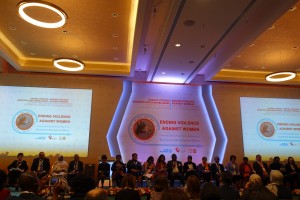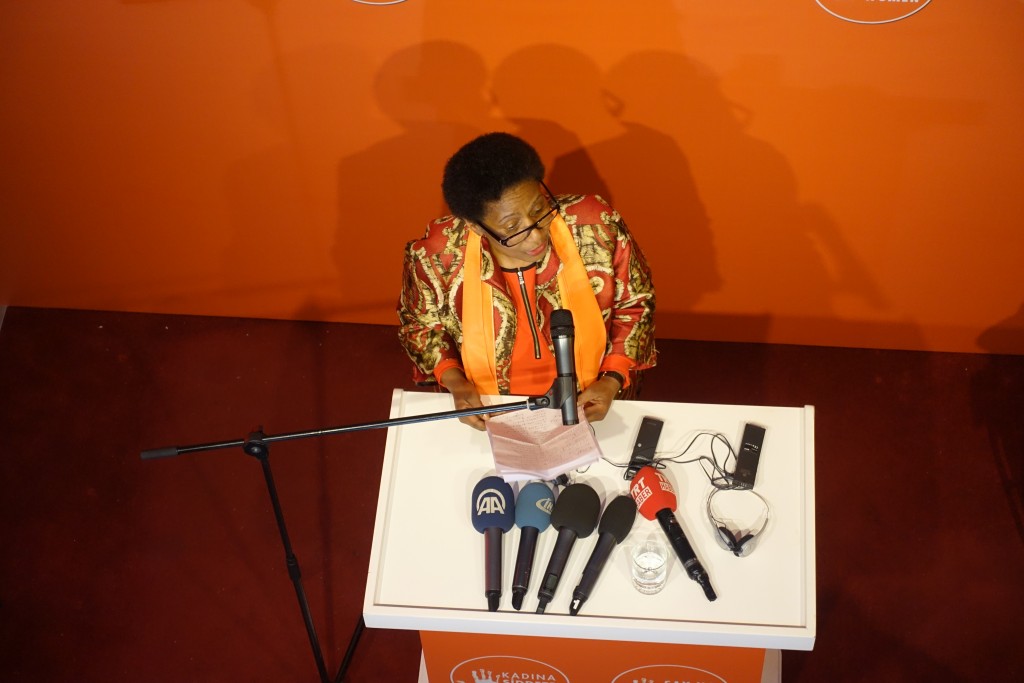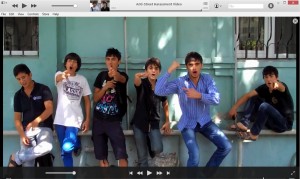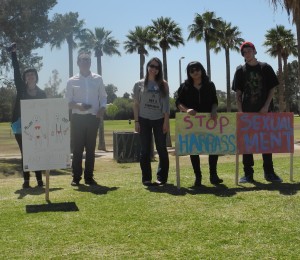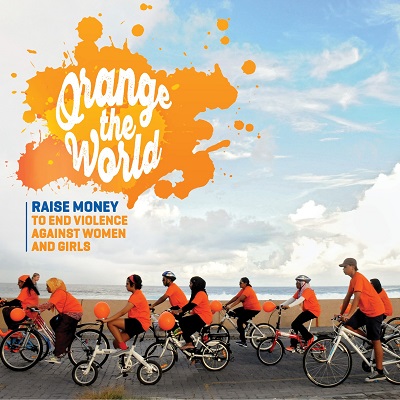
Today, November 25, is the International Day for the Elimination of Violence against Women, organized by the UN. The UNiTE campaign “strongly emphasizes the need for sustainable financing for efforts to end violence against women and girls towards the fulfillment of the 2030 Agenda for Sustainable Development.”
Why?
“One of the major challenges to efforts to prevent and end violence against women and girls worldwide is the substantial funding shortfall. As a result, resources for initiatives to prevent and end violence against women and girls are severely lacking.”
To that end, we encourage you to consider donations to these organizations that are working to address and end violence against women and girls:
- Stop Street Harassment (of course) to help fund our National Street Harassment Hotline in 2017. You can also donate to support our 2017 Safe Public Spaces Mentoring Program and an updating of the laws in our Know Your Rights Toolkit, which was produced in 2013.
- Collective Action for Safe Spaces (Washington, D.C.)
- Girls for Gender Equity (New York City)
- A Long Walk Home (Chicago)
- End Rape on Campus (national, USA)
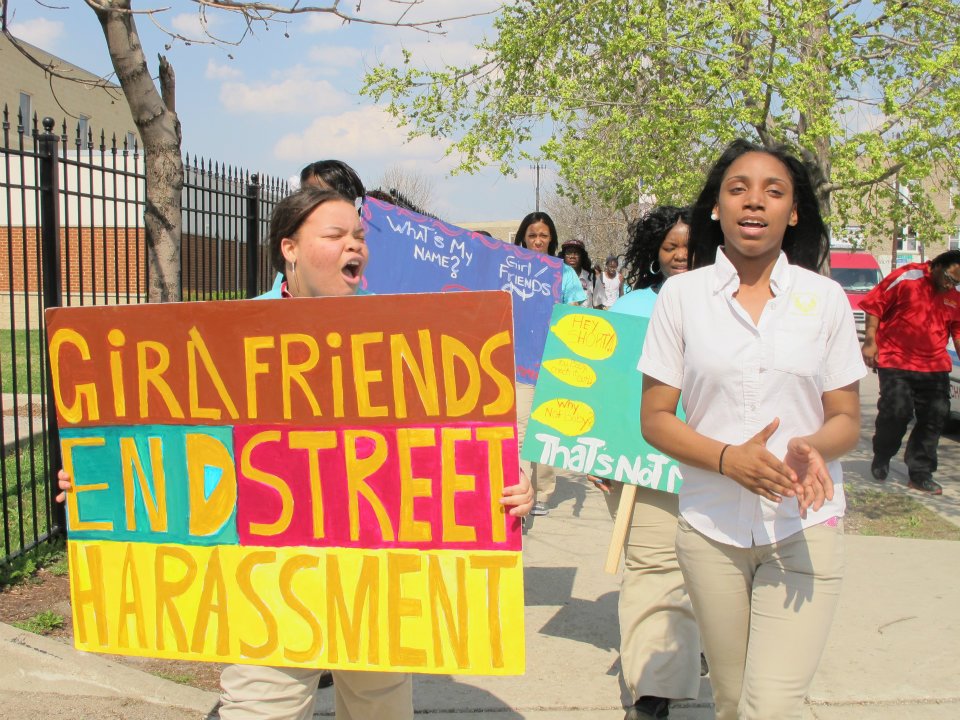
Today is also the first day of the 16 Days of Activism Against Gender-Based Violence Campaign (being commemorated for its 25th year), coordinated by the Center for Women’s Global Leadership.The theme of the 16 Days Campaign is “From Peace in the Home to Peace in the World: Make Education Safe for All”. According to the 16 Days website,
“This theme recognizes that structural discrimination and inequality is perpetuated in a cycle of violence that does not end even when girls and young women are in the act of gaining an education. Gender-based violence with respect to the right to education is a consistent threat in public spaces, schools, and homes and is a detriment to the universal human right to education and it is our obligation to focus on the precarious situation of education for girls and boys, young women and men this year through the 16 Days Campaign.”
Many girls and women also face violence and harassment simply traveling TO and FROM school and college. This also must be addressed if we want to see girls be able to safely receive an education.
For more information on this specific problem, see the Safe Routes to School National Partnership’s report that includes information on street harassment.
Join the conversations online with #16Days and take a stand against violence against women.
Remember, donate if you can! Our work relies on the generous contributions of people like you.


